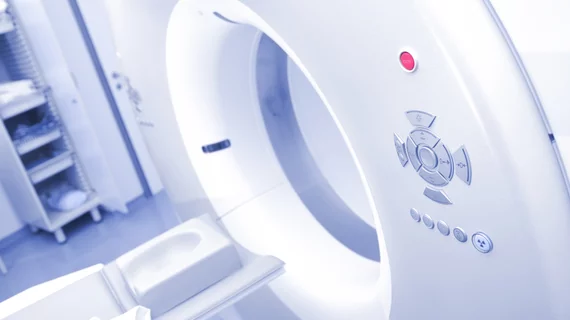VR application helps patients overcome MRI anxiety, claustrophobia
Researchers from the University of Michigan (UM) have developed a virtual reality (VR) smartphone application designed to help patients avoid feeling claustrophobic by replicating what happens during an MRI.
The team, including representatives from UM's department of radiology and the Duderstadt Center’s Emerging Technologies Group, also published more about its research in Tomography.
Almost 2 percent of MRI exams are terminated at their institution due to patient fears, the authors noted in their study. These terminations are typically due to claustrophobia.
“We realized there was an opportunity to improve care by making our patients aware of what the procedure is like in advance of the study,” wrote lead author Richard K.J. Brown, MD, of the department of radiology at UM, and colleagues. “There have been many studies showing that desensitization therapy using virtual reality (VR) as a tool is an effective means of treating phobias.”
Brown and colleagues sought to apply the same desensitization therapies for patients who may MRI examinations. The multidisciplinary team—including programmers, physicians and digital video artists—created a virtual scanning room where MRI exams are administered. The researchers created “a more realistic experience” by using a 3D environment.
“The app allows patients to fully experience the sensation of being inside of a scanner,” said Daniel Fessahazion, associate director of the Emerging Technologies Group, in a blog post released by the university. “As a patient turns their head or moves their body, they can see the room around them while the system detects their motion and provides them with the illusion that they are inside the MRI.”
The team also recorded sounds within the actual scanner in an effort to mimic the sounds of undergoing an MRI.
“There clearly is an opportunity to improve care by making our patients aware of what to expect during the procedure in advance of actually having the scan,” the authors wrote in their study. “Although we will make this tool available to patients as a downloadable app for educational purposes, we anticipate that it will be the most effective if the device is made available for use at key referral clinics and at our MRI facilities.”
A clinical trial is being planned to determine the efficacy of the VR app in decreasing anxiety, claustrophobic cancellation and the need for conscious sedation, the authors concluded.

